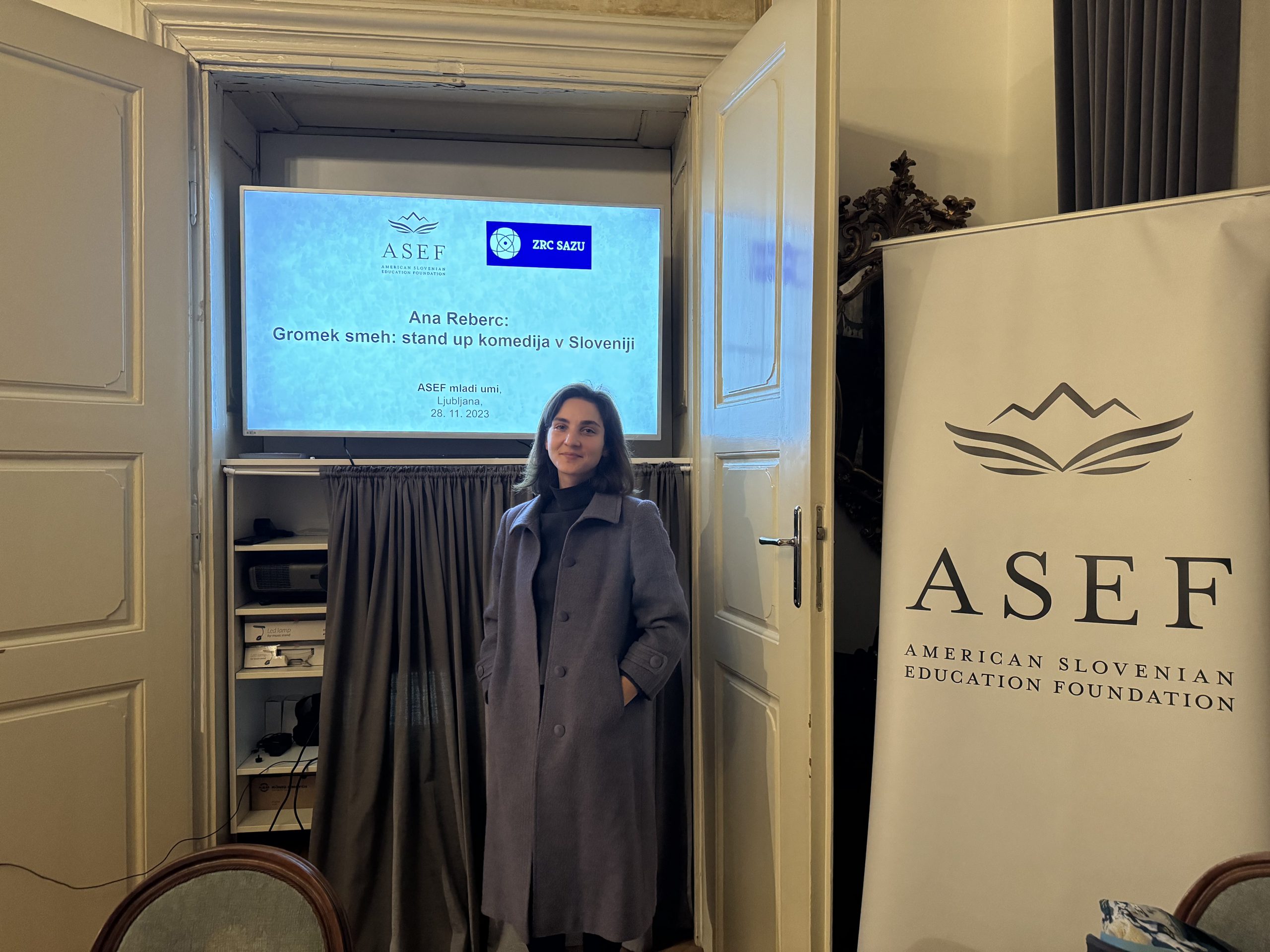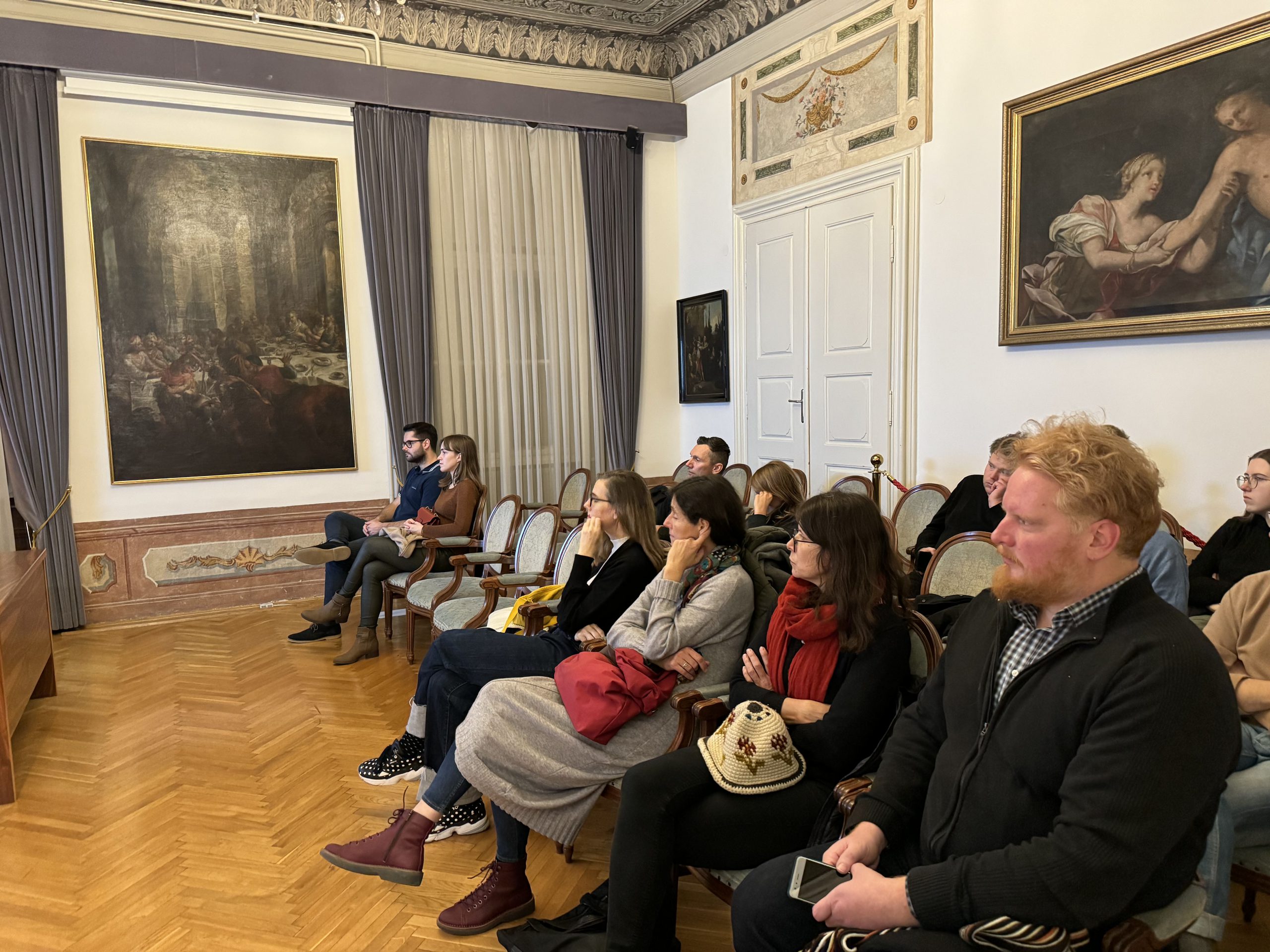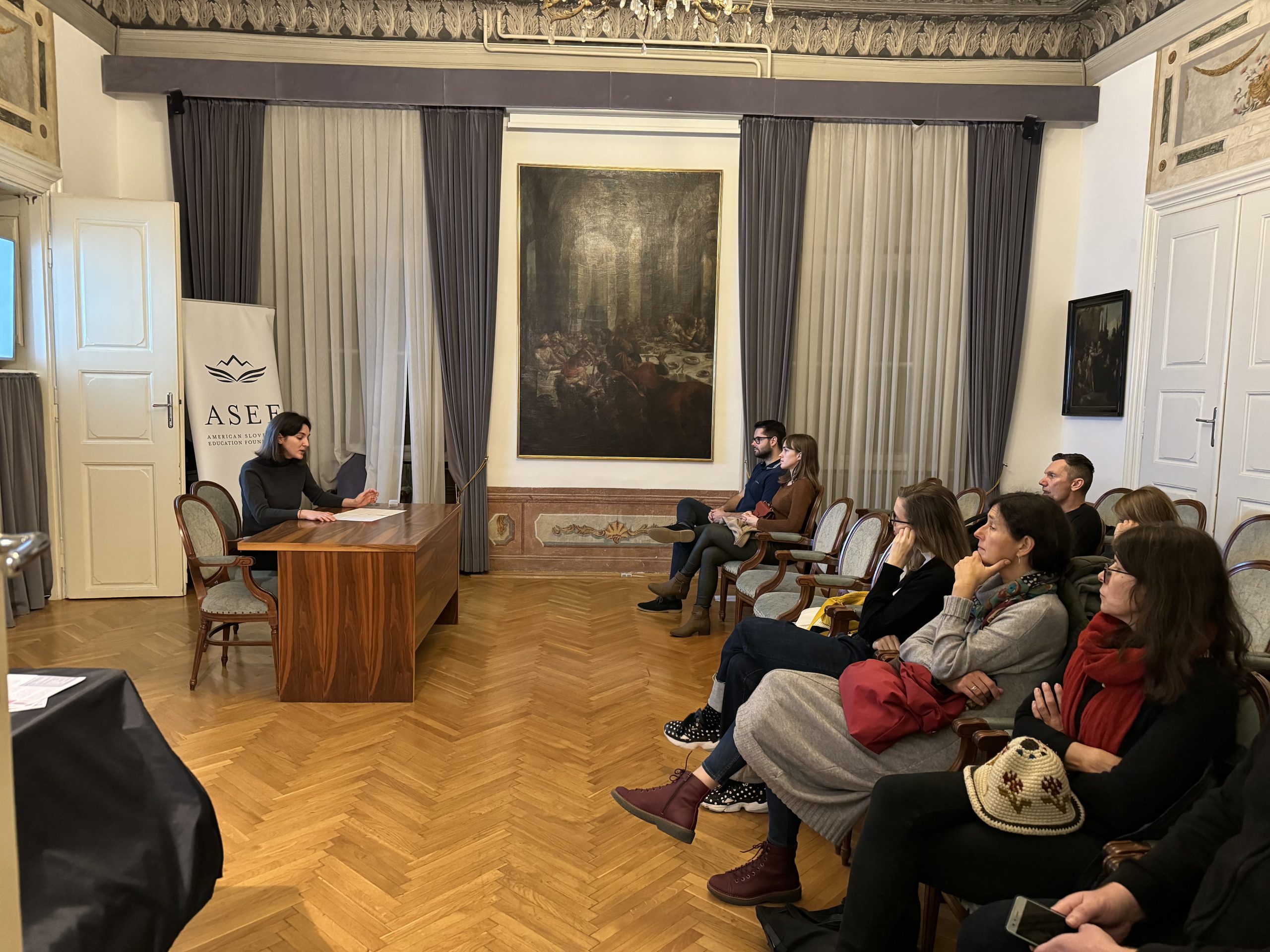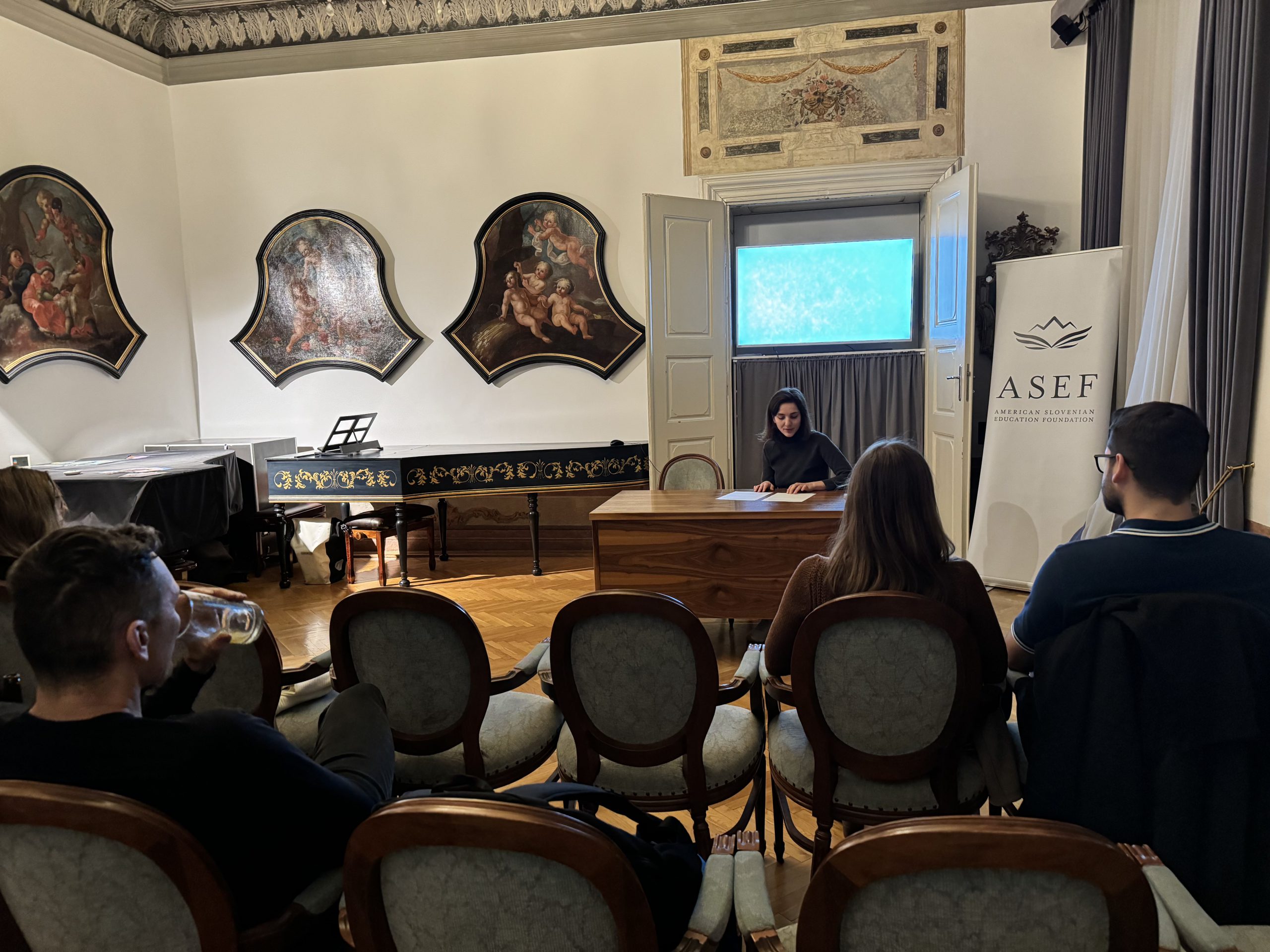
Thunderous Laughter: Stand up Comedy in Slovenia
On Tuesday, November 28, ASEF organized a popular science lecture at ZRC SAZU as part of the ASEF young minds lecture series. Ana Reberc, a 2018 ASEF Junior Fellow and researcher at the Slovenian Migration Institute and a doctoral student at ZRC SAZU, gave the lecture.
In the lecture, we devoted most of our time to the social phenomenon of stand-up comedy – what makes a joke funny, what provokes laughter in the audience, what is the culture like in Slovenia etc.
Stand up comedy began to gradually develop in the Slovenian space in the 90s, but today it represents a popular form of mass entertainment. The performers, the audience, the content and the venue play key roles in the staging of stand-up comedy. In order to decode a humorous story and generate a (mass) affective response (most often laughter), the audience has to be completely intertwined with the social and historical context of the joke and the jokester. Jokes are a reflection of the social structure of which they are a part. In the Slovenian space, stand-up shows cover various themes that shed light on which social elements are specific to this environment. Themes such as local-patriotic, ethnic, language and identity themes, themes related to work and class position and gender, themes about generational differences, interpersonal relationships, current issues and evergreen jokes (e.g. about cops) stand out. The performers place their experiences in time and space by recalling certain elements of the past and space, deciphering which is the job of the audience, who are actively present in this way.
The results of Ana’s further research will shed light on the concrete political, economic and cultural conditions within which stand-up performers place the experience in time and space, what kind of content is created on this basis and how it is co-created by audiences in concrete performances of stand-up comedy in Slovenia. The original scientific contribution will be the discovery of shared contextualization by articulating the process of articulating one’s own positionality in the public sphere of the performers, while at the level of the audience, the recognition of a shared context and its recognition through an affective response within a concrete and regulated social situation will be analyzed. Regardless of all the potentially possible conclusions, it is clear that stand up narratives draw elements from a shared past.
The entire event was coordinated by Martin Rihtaršič, an ASEF Junior Fellow of the 2022 generation.
The ASEF Young Minds project is supported by the Office of the Republic of Slovenia for Youth.




